Related Research Articles
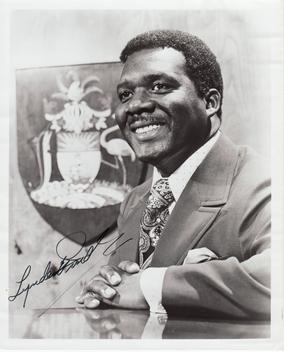
Sir Lynden Oscar Pindling, KCMG, PC, NH, JP was a Bahamian politician who is regarded by some as the "Father of the Nation", having led the Bahamas to majority rule and independence.

Perry Gladstone Christie PC, MP is a Bahamian former politician who served as Prime Minister of the Bahamas from 2002 to 2007 and from 2012 to 2017. He is the second longest-serving Bahamian elected parliamentarian, representing the Centreville constituency from 1977 to 2017. He is also a former athlete. His Progressive Liberal Party is the oldest Bahamian political party, holding solid majorities in the Bahamian Parliament several times in its long history.
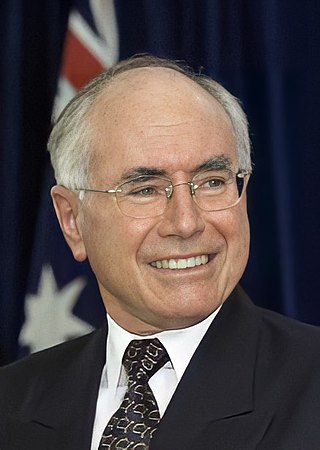
The 2001 Australian federal election was held in Australia on 10 November 2001. All 150 seats in the House of Representatives and 40 seats in the 76-member Senate were up for election. The incumbent Liberal Party of Australia led by Prime Minister of Australia John Howard and coalition partner the National Party of Australia led by John Anderson defeated the opposition Australian Labor Party led by Kim Beazley. Future Opposition Leader Peter Dutton entered parliament at this election.
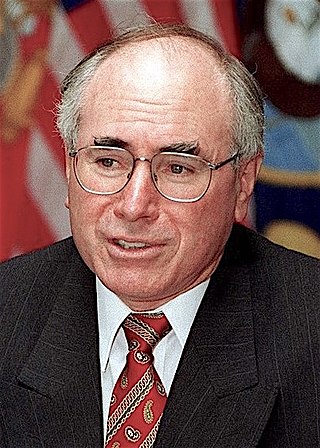
The 1996 Australian federal election was held to determine the members of the 38th Parliament of Australia. It was held on 2 March 1996. All 148 seats of the House of Representatives and 40 seats of the 76-seat Senate were up for election. The centre-right Liberal/National Coalition led by Opposition Leader John Howard of the Liberal Party and coalition partner Tim Fischer of the National Party defeated the incumbent centre-left Australian Labor Party government led by Prime Minister Paul Keating in a landslide victory. The Coalition won 94 seats in the House of Representatives, which is the largest number of seats held by a federal government to date and the second time a party won over 90 seats at a federal election.

General elections were held in Malaysia on Sunday, 21 March 2004. Voting took place in all 219 parliamentary constituencies, each electing one Member of Parliament to the Dewan Rakyat, the dominant house of Parliament. They were the first elections for Abdullah Ahmad Badawi as Prime Minister following his appointment in 2003. State elections also took place in 505 state constituencies in twelve of the thirteen states on the same day as Sabah took the first time election was parallel with the rest of Peninsular Malaysia.
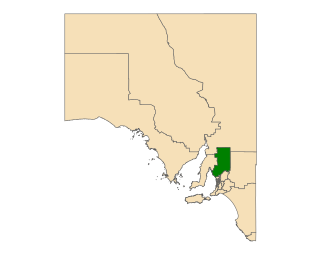
Frome is a single-member electoral district for the South Australian House of Assembly. It is named after Edward Charles Frome, the third surveyor-general of South Australia. The electorate stretches north-eastwards from the Gawler River and Gulf St Vincent in the south, and includes many of the agricultural areas of the Clare and Gilbert Valleys. It covers a total of 12,921 km2 (4,989 sq mi) and takes in the towns of Auburn, Clare, Mintaro, Port Broughton, Saddleworth, Snowtown and Riverton. Prior to the 2020 redistribution, its main population centre was Port Pirie, since transferred to the Stuart.

In Australian politics, the two-party-preferred vote is the result of an election or opinion poll after preferences have been distributed to the highest two candidates, who in some cases can be independents. For the purposes of TPP, the Liberal/National Coalition is usually considered a single party, with Labor being the other major party. Typically the TPP is expressed as the percentages of votes attracted by each of the two major parties, e.g. "Coalition 50%, Labor 50%", where the values include both primary votes and preferences. The TPP is an indicator of how much swing has been attained/is required to change the result, taking into consideration preferences, which may have a significant effect on the result.

General elections were held in the Bahamas on 2 May 2002. The opposition Progressive Liberal Party (PLP) won 29 of the 40 seats in the House of Assembly to defeat the governing Free National Movement (FNM). Voter turnout was 90.2%.
The Queensland Labor Party (QLP) was a political party of Queensland, Australia formed in 1957 by a breakaway group of the then ruling Labor Party Government after the expulsion of Premier Vince Gair. In 1962 the party became the Queensland section of the Democratic Labor Party (DLP). The party continued to hold seats in the Queensland state parliament until 1972, then suffered a collapse in its vote and wound itself up in 1978.
The 1982 Tasmanian state election was held on 15 May 1982 in the Australian state of Tasmania to elect 35 members of the Tasmanian House of Assembly. The election used the Hare-Clark proportional representation system — seven members were elected from each of five electorates. The quota required for election was 12.5% in each division.
Elections were held in the state of Western Australia on 23 February 1980 to elect all 55 members to the Legislative Assembly and 16 members to the 32-seat Legislative Council. The Liberal-National Country coalition government, led by Premier Sir Charles Court, won a third term in office against the Labor Party, led by Opposition Leader Ron Davies.
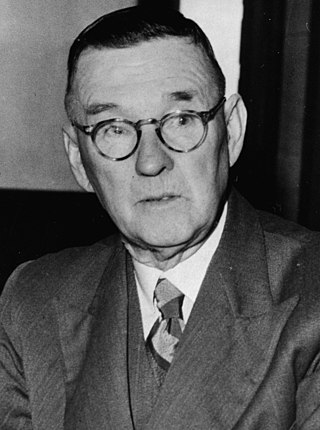
Elections were held in the Australian state of Queensland on 15 April 1944 to elect the 62 members of the state's Legislative Assembly.

General elections were held in the Bahamas on 10 January 1967. The result was a tie between the Progressive Liberal Party and the United Bahamian Party, both of which won 18 seats. In a reversal of the previous election, this time the PLP received a lower share of the vote than the UBP, but was able to form the country's first black-led government with the support of the sole Labour Party MP Randol Fawkes.
The Bahamian Democratic Party was a political party in the Bahamas. It contested the 1977 general elections, in which it received 26.9% of the votes and won six seats, becoming the largest opposition party in Parliament. However, it did contest the 1982 elections.
Sir Randol Francis Fawkes was a Bahamian politician, trade unionist and lawyer.
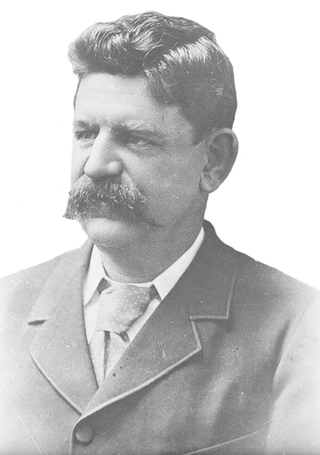
The 1910 New South Wales state election was held on 14 October 1910 for all of the 90 seats in the 22nd New South Wales Legislative Assembly and it was conducted in single-member constituencies with a second ballot if a majority was not achieved on the first. Both adult males and females were entitled to vote, but not Indigenous people. The 21st parliament of New South Wales was dissolved on 14 September 1910 by the Governor, Lord Chelmsford, on the advice of the Premier Charles Wade.

The 2015 United Kingdom general election in Northern Ireland was held on 7 May 2015 and all 18 seats were contested. 1,236,765 people were eligible to vote, up 67,581 from the 2010 general election. 58.45% of eligible voters turned out, an increase of half a percentage point from the last general election. This election saw the return of Ulster Unionists to the House of Commons, after they targeted 4 seats but secured 2.

Elections to Strathclyde Regional Council were held on Thursday 3 May 1990, on the same day as the eight other Scottish regional elections. This was the fifth election to the regional council following the local government reforms in the 1970s.
Dame Doris Sands Johnson was a Bahamian teacher, suffragette, and politician. She was the first Bahamian woman to contest an election in the Bahamas, the first female Senate appointee, and the first woman granted a leadership role in the Senate. Once in the legislature, she was the first woman to be made a government minister and then was elected as the first woman President of the Senate. She was the first woman to serve as Acting Governor General of the Bahamas, and was honored as Dame Commander of the Most Excellent Order of the British Empire by Queen Elizabeth II.
The number of seats won by each party in the Australian House of Representatives at the 2022 federal election were: Coalition 58, Labor 77, Australian Greens 4, Centre Alliance 1, Katter's Australian Party 1, and Independents 10.
References
- ↑ An Informal History of the Grand Bahama Port Authority, 1955-1985 Bahamian Fragments
- ↑ Nohlen, D (2005) Elections in the Americas: A data handbook, Volume I, p79 ISBN 978-0-19-928357-6